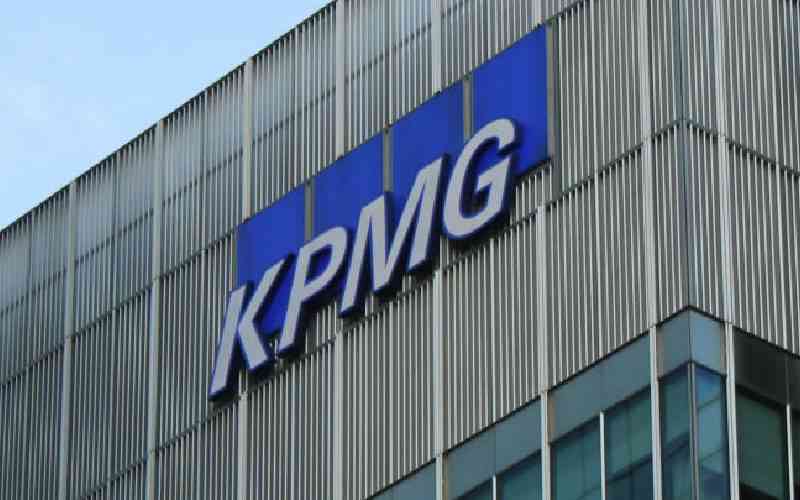
Consumer spending rose by 30 per cent in the three months to September 2024, driven by increased sales in the retail sector.
Individual spending however recorded a three per cent decline in the same quarter, with the ILAM Consumer Spending Index attributing this to reduced spending by women. “For the first time this year, we saw lower spending by women during the third quarter,” stated the survey.
When compared to the second quarter, 60 per cent of retailers surveyed reported an increase in sales compared to the same period last year. About 40 per cent of retail businesses had lower sales.
The findings of the survey are based on responses from 1,200 consumers and 200 retail businesses in major urban centres across the country.
Of the 60 per cent of the retailers recording high sales, the majority were in Nairobi and Mombasa, while most of the lower sales were in Kisumu and Nakuru. In terms of business sectors, the retail shopping and food and beverage sectors saw the biggest recovery in sales trends in the third quarter.
Though people aged between 36 and 45 had the highest proportion of individuals spending more, this was offset by a large proportion of those aged 18 and 35 spending less.
Non-performing loans
Speaking at the release of the findings in Nairobi, yesterday, ICEA LION Asset Management chief executive Einstein Kihanda said: “Retail businesses surprisingly reported improved sales trends despite the prevailing operating environments.”
With almost 90 per cent of respondents making purchases using their own income, and the remainder using credits, Kihanda attributed this to banks cutting back on borrowings and increased non-performing loans.
According to the report, private sector credit growth slowed to seven per cent in April 2024.
“Over 30 per cent of the respondents used local shop arrangements for purchases, 21 per cent used Fuliza to make purchases, 18 per cent borrowed from friends and acquaintances, and 15 per cent used mobile loans. Five per cent used Lipa Pole pole,” noted ICEA LION Consumer Spending Index 2024 on purchasing behaviour.
In the review period, respondents working in the manufacturing and trade sectors recorded the highest proportions of improved incomes, while those employed in wholesale and retail had the largest proportion of reduced incomes.
“This represented the second successive quarter when manufacturing sector workers have led in increased incomes,” noted the survey. Compared to the third quarter of last year, 55 per cent of respondents reported no change in income, while 26 per cent experienced an increase and 19 per cent reported a decrease.
People working in the education and training sector reported the highest decrease in income. On average, their income decreased by 34 per cent. Conversely, People in real estate, transport, and education also saw an increase in income of about 23 per cent.
According to the asset manager, most respondents with increased income attributed it to having side hustles, followed by pay increments, increased revenue from my business or investments, and, a change of jobs.
The majority of those with reduced incomes attributed it to low business performance, increased taxes, job losses and pay cuts.
With 76 per cent indicating an increase in spending, this was a slight drop from the second quarter.
The increase was attributed to increased prices of goods and buying more quantities.
About 81 per cent of workers in the real estate or building and construction sector, recorded an increase in spending. While, workers in hotels, and tourism reported the highest decrease in spending at 32 per cent.
To cope with the rising prices of commodities, the majority of respondents have cut out nonessential spending, dug into their savings, reduced quantities of essential spending, got side jobs, and, borrowed to purchase.
In the third quarter of 2024, retail sales increased by 65 per cent, restaurant and bars and leisure outlets sales increased by 63 per cent while clothing-apparel store sales increased by 54 per cent. Businesses with increased sales attributed it to customers purchasing more as the prices of goods decreased.
Those who reported decreased sales attributed it to higher taxes, higher prices of goods, seasonality - periods of low demand and changes in customer preferences.
“The prominent products associated with an increase in sales was maize flour, cooking oil and sugar and the decrease in sales was attributed to low demand of products such as shoes, school and accommodation,” ILAM Consumer Spending Index Q3 2024.
Over 74 per cent of retailers are projecting increased sales in the next quarter, as they look to cushion themselves from increases in prices of supplies and input by passing it on to customers by increasing prices of goods.
Additionally, the survey found that retailers look to offset costs by decreasing profit margins and selling at the same price, drawing from the reserves of the company, and obtaining loans or credit.
 The Standard Group Plc is a multi-media organization with investments in media platforms spanning newspaper print
operations, television, radio broadcasting, digital and online services. The Standard Group is recognized as a
leading multi-media house in Kenya with a key influence in matters of national and international interest.
The Standard Group Plc is a multi-media organization with investments in media platforms spanning newspaper print
operations, television, radio broadcasting, digital and online services. The Standard Group is recognized as a
leading multi-media house in Kenya with a key influence in matters of national and international interest.











